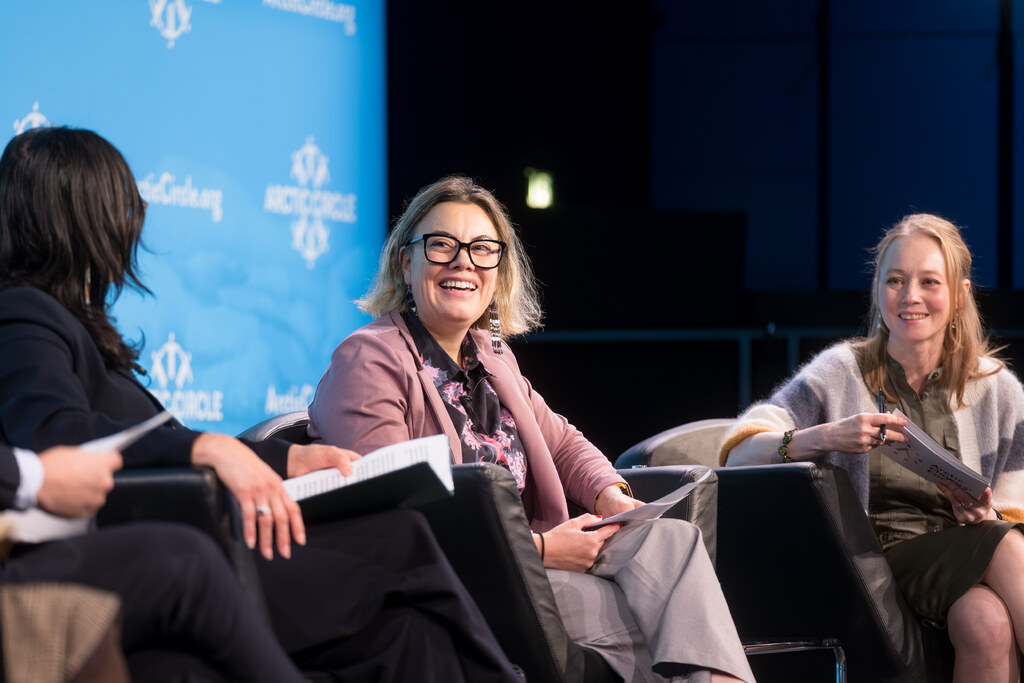
From the North, for the North: Building energy security in a changing Arctic
At this year's Arctic Circle Assembly, Nordic Energy Research put energy security in the Arctic high on the agenda through a series of events. In a packed Silfurberg Hall, ministers…
At this year’s Arctic Circle Assembly, Nordic Energy Research put energy security in the Arctic high on the agenda through a series of events. In a packed Silfurberg Hall, ministers from Canada, Greenland, Iceland and representation from the European Union took the stage to discuss one of the region’s most pressing issues – how to build lasting energy security in the Arctic.
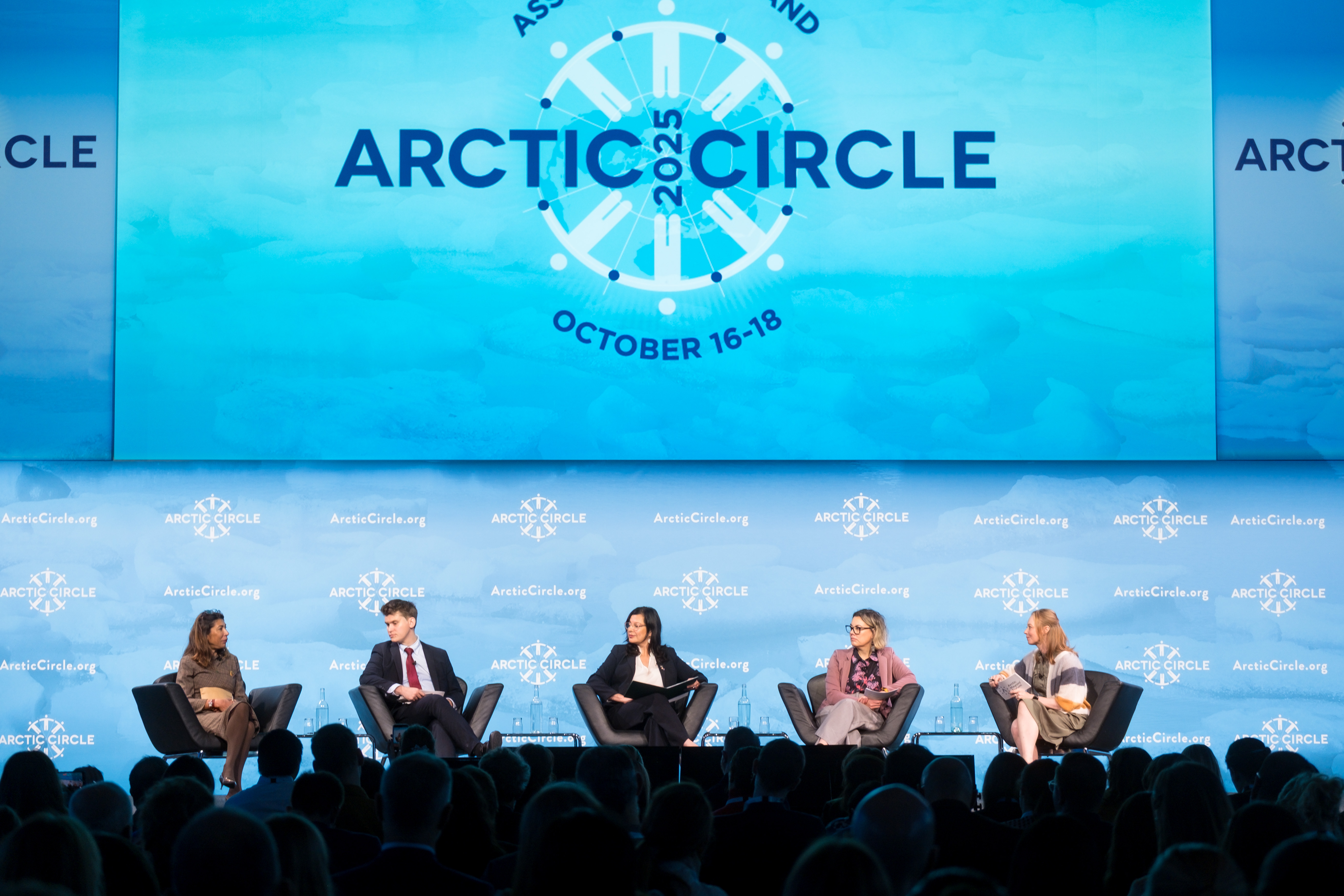
From left: Ms Claude Veron-Reville, H.E. Jóhann Páll Jóhannsson, the Hon. Rebecca Chartrand, H.E. Naaja H. Nathanielsen and Ms. Patti Bruns (moderator). Photo: Ernir Eyjólfsson
Although the geography and natural resources of the three Arctic nations differ, they share a common vision: ambitious climate goals and a deep understanding of the importance of working with Indigenous peoples and local communities to achieve them.
Bridging the gap between global climate ambitions and local realities
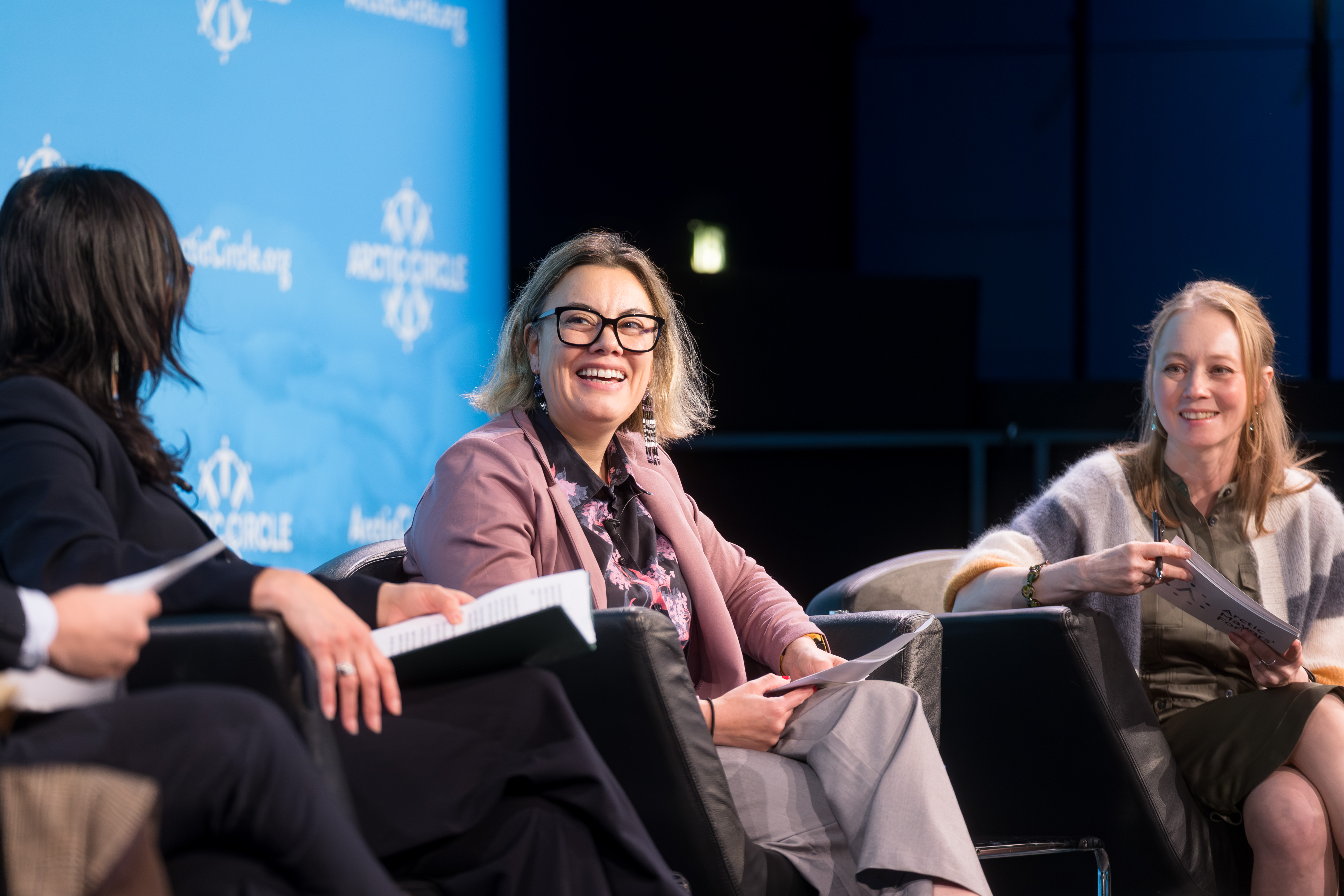
H.E. Naaja H. Nathanielsen, Minister of/Naalakkersuisoq for Business, Energy, Natural Resources, Justice, and Equality (center). Photo: Ernir Eyjólfsson
Greenland has made remarkable progress towards a greener energy system. Today, 82% of its energy comes from renewable sources, with hydropower as the largest contributor. Yet some sectors, such as maritime transport, still lag behind.
Minister Naaja H. Nathanielsen highlighted the challenges of balancing global climate ambitions with local realities. In a sparsely populated and widely dispersed society, affordability remains a key issue.
She noted that Greenland’s publicly owned energy market ensures equal prices across the country. To accelerate the transition, the government allows energy companies to borrow at low interest rates. Greenland also holds significant deposits of critical minerals vital for the global green transition. However, extraction remains capital-intensive, and the country currently manages only the first part of the value chain, exploration and extraction.
Affordable, reliable and home-grown energy for all
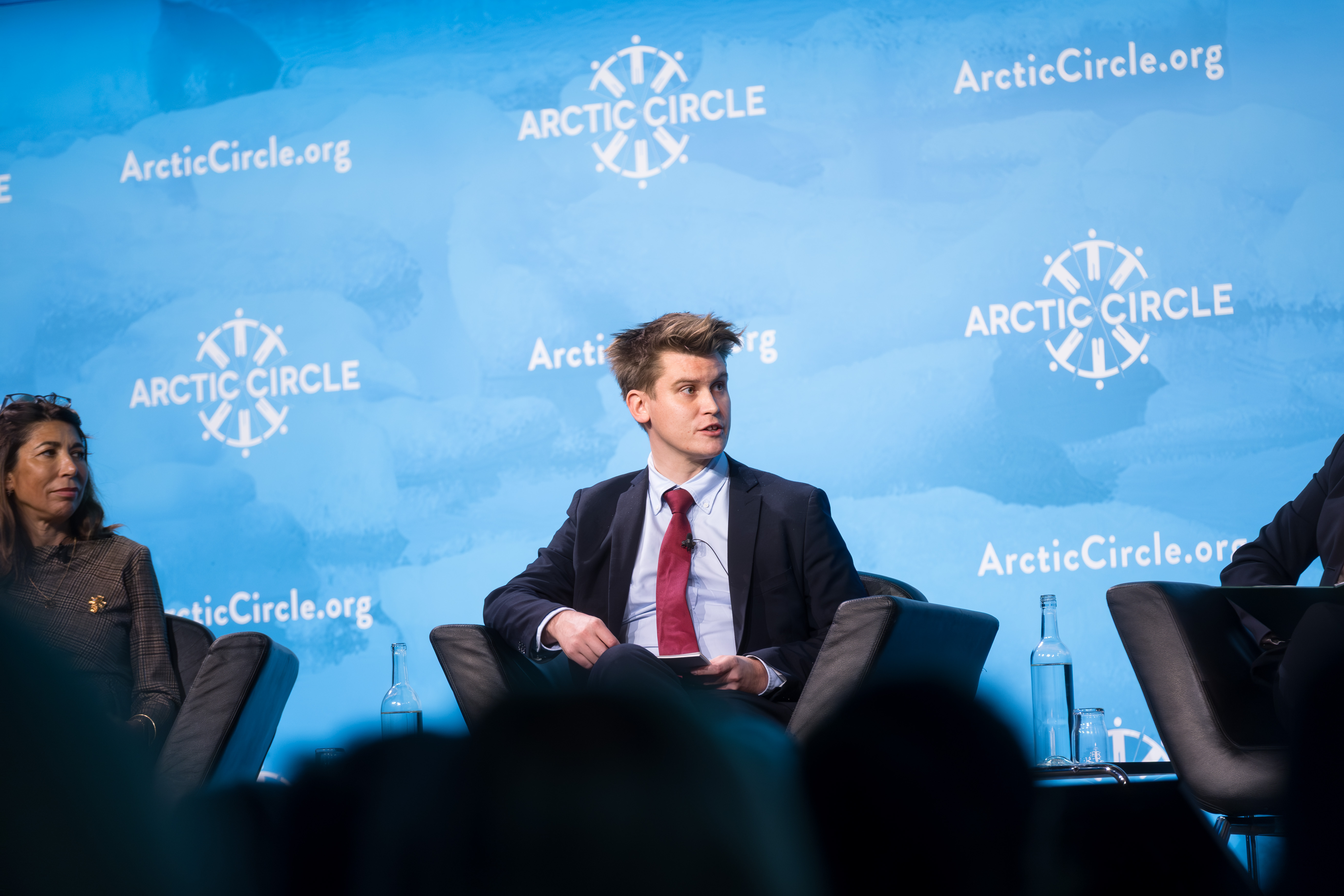
H.E. Jóhann Páll Jóhannsson, Minister of the Environment, Energy and Climate, Iceland (center). Photo: Ernir Eyjólfsson
Iceland stands out in the Arctic – and the world – for its abundant geothermal resources. As Minister Jóhann Páll Jóhannsson explained, around 90% of all buildings in Iceland are heated with geothermal energy, providing energy independence, affordability, and reliability.
“The future for renewables is bright,” said Minister Jóhannsson. “We need to move from ‘not in my backyard’ to ‘yes in my backyard’ – and that requires a public mission. The government has a clear goal to make that happen.”
“From the North, for the North”
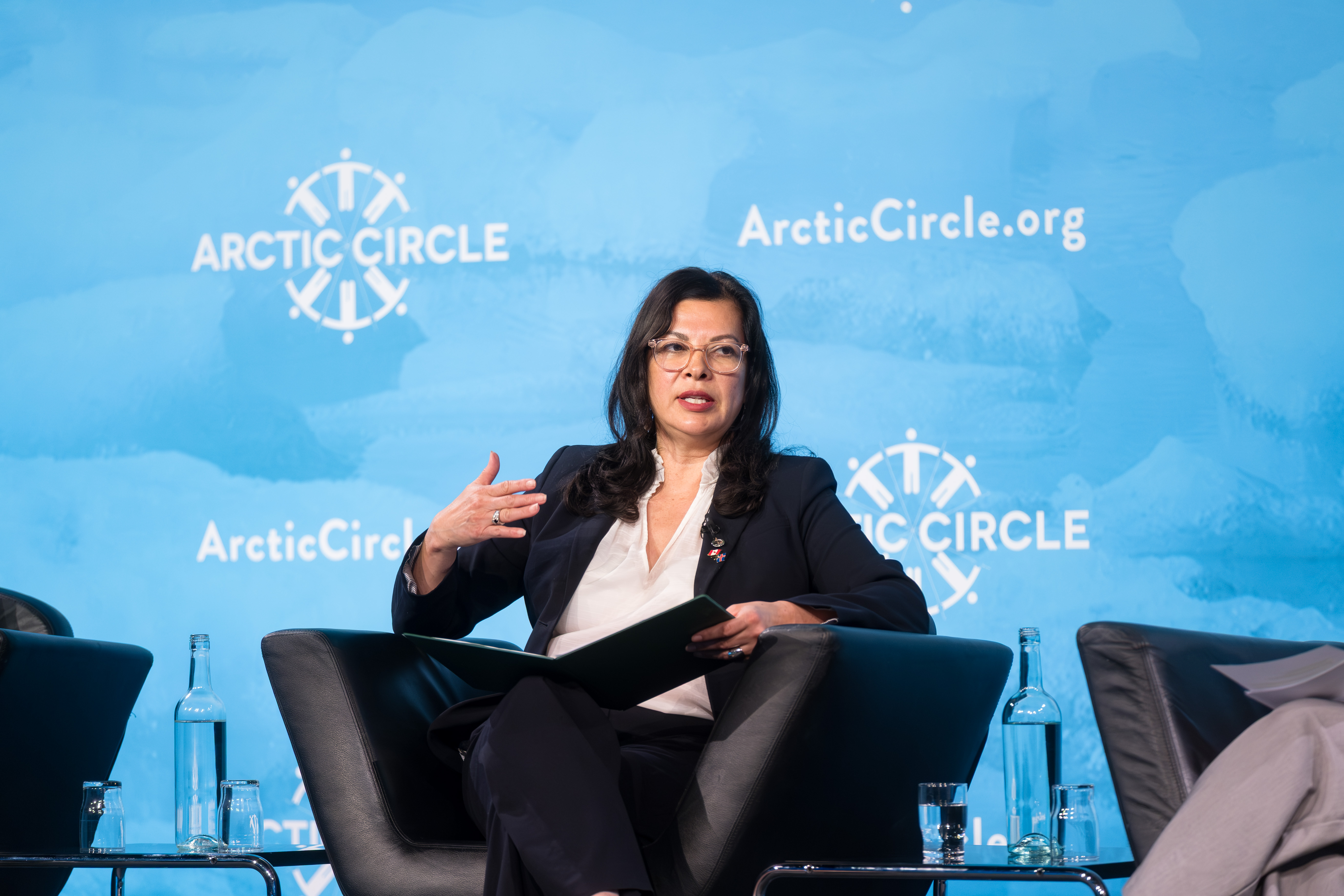
The Hon. Rebecca Chartrand, Minister of Northern and Arctic Affairs, Canada. Photo: Ernir Eyjólfsson
Like Greenland, Canada’s vast geography and many small, remote communities present unique energy challenges. Minister Rebecca Chartrand emphasised that strong partnerships with Indigenous peoples and local communities are crucial for building true energy security.
“There is no one-size-fits-all solution,” she said. “But there is much to learn from our Arctic neighbours. This work must be done hand in hand with Indigenous Peoples – it has to be from the North, for the North.”
EU-Arctic partnerships to support green investment and energy transition
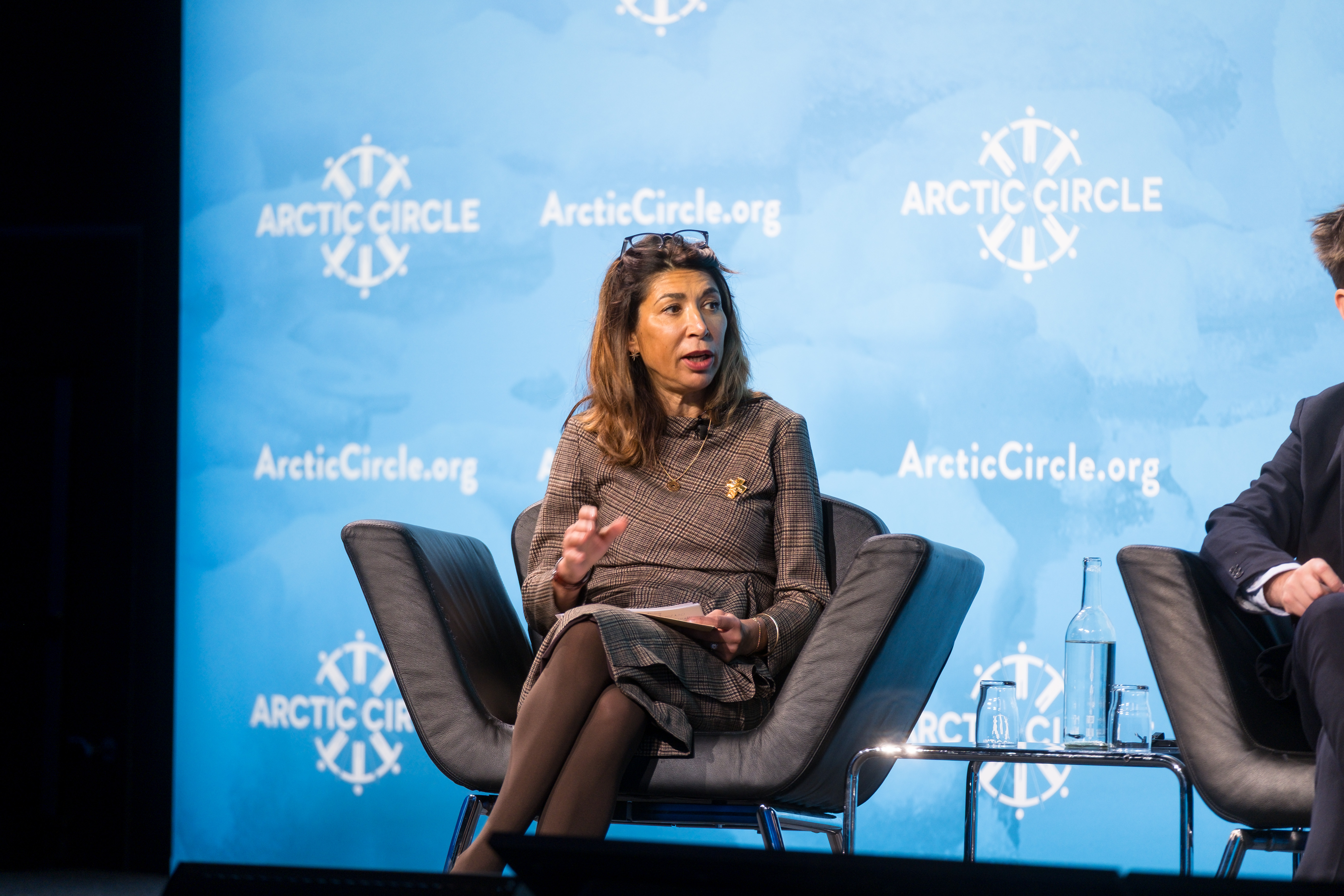
Ms Claude Veron-Reville, Special Envoy for Arctic Matters and Head of Division for Western Europe at the European External Action Service. Photo: Ernir Eyjólfsson
While the Arctic states hold primary responsibility for addressing challenges within their territories, many of these issues cross national borders. Over recent years, the European Union has strengthened its cooperation with the Arctic region.
The current geopolitical context has made the need to move away from fossil fuels even more urgent – particularly as much of Europe’s previous supply came from Russia.
Ms. Claude Veron-Reville highlighted the great potential of the Arctic and the EU’s work to support green investments that help phase out fossil fuels – for instance, through projects in Greenland.
